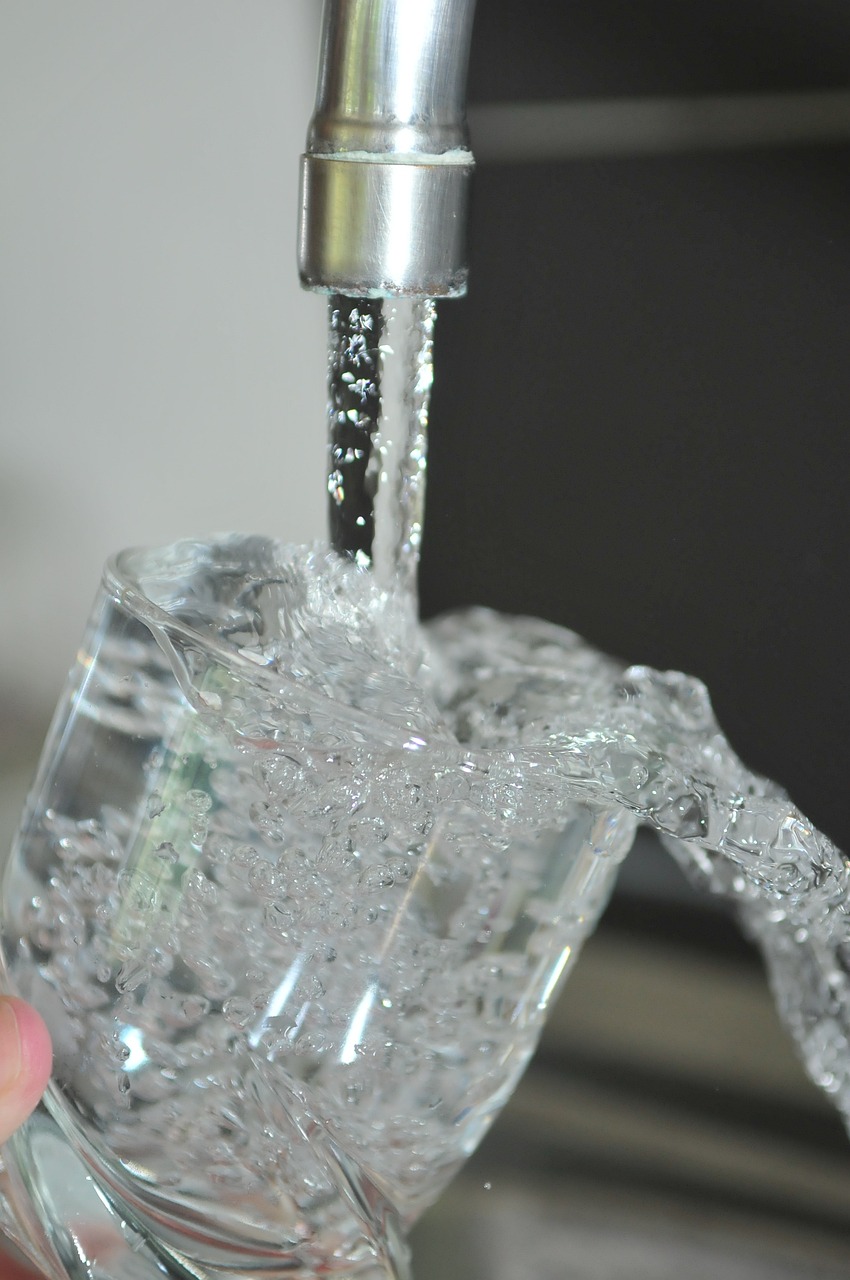
Project Overview
Waterlinx employs citizen science methods to monitor water quality in Luxembourg. For this purpose, an app is currently in the testing phase. This project thus democratises data generation for one of humanity's most vital common goods.
Why Does the State of Water Concern Everyone?
Water is the foundation of life, connecting all living organisms. However, Luxembourg's water system is facing increasing challenges. The quality of water as a habitat for diverse species and as a water supply for humans in river basins largely depends on the interaction of three main factors: seasonal precipitation, the geological and ecological makeup of the river basin, and human land and water use, including wastewater treatment.
Despite the legally binding requirements of the EU Water Framework Directive and the corresponding Luxembourg law to improve the state of water by 2027, not a single one of the over 100 examined water bodies is in good ecological condition. The nutrient content is generally too high, few water bodies provide sufficient habitat for fauna and flora, and there is a lack of habitats and structures that can develop only when they have enough space and are protected by riparian zones. Official data is available on the Geoportal.
Luxembourg has been the fastest-growing country in the EU for decades, with a population of around 620,000 people, increasing by about 10,000 annually. In addition, nearly 200,000 commuters enter the country every day. This puts even more pressure on the already stressed water system.
Details about the Project
The increasingly rapid changes in technology, economy, and society make it difficult to predict and model the future. Basic natural resources such as water and land are becoming increasingly strained due to economic and population growth, particularly in the small but rapidly growing country of Luxembourg. While some future changes are relatively predictable, others remain uncertain.
However, one thing is certain: many future impacts of global change can be influenced by human actions, for better or worse. The need for new methods of decision-making in the face of such complex interdependencies is clear.
Let’s shape the future together! Join the movement to create a sustainable and thriving future by actively participating in decision-making processes. Through our collective actions, we can make a positive impact and ensure a better tomorrow.
Regenerative initiatives should consider the complex interdependencies between changes across social and environmental spheres and a wide range of spatial and temporal scales (Garmestani et al., 2020). Actions and experimentation will benefit from being networked across these scales and levels of governance, while also taking into account changes in different place-based circumstances and the diverse needs and wants of local groups.
 Accordingly, the citizen science work strand focuses on the interplay of science, policy, and practice for the protection and regeneration of surface water bodies. The decline in water quality is seen as an emergent phenomenon within complex social-ecological-technological systems. Our research approach, ‘transformative sustainability science,’ relies on participatory processes that combine scientific knowledge from the natural and social sciences with place-based knowledge and experience (König, 2018). We develop concepts, methods, processes, and spaces for participatory scientific inquiry that embrace complexity, contingency, uncertainty, and contradictions among diverse experts and interest groups.
Accordingly, the citizen science work strand focuses on the interplay of science, policy, and practice for the protection and regeneration of surface water bodies. The decline in water quality is seen as an emergent phenomenon within complex social-ecological-technological systems. Our research approach, ‘transformative sustainability science,’ relies on participatory processes that combine scientific knowledge from the natural and social sciences with place-based knowledge and experience (König, 2018). We develop concepts, methods, processes, and spaces for participatory scientific inquiry that embrace complexity, contingency, uncertainty, and contradictions among diverse experts and interest groups.
Citizen science, defined as a process of scientific inquiry to which both volunteers and expert scientists contribute, presents a promising approach to engaging diverse groups across different locations, governance levels, and timescales in collaborative processes to better understand and expand our capacity to reverse environmental degradation, including declining water quality. The project responds to calls for greater citizen participation in water governance, as outlined in the EU Water Framework Directive, the CSDD expert opinion on sustainable water governance, and the Vision 2020 of the European Statistical System for generating data and statistics from more diversified sources.
This part of the project provided our team with the first opportunity to develop citizen science approaches for Luxembourg and beyond. We were able to engage internationally leading scientist Prof. Muki Haklay from University College London as a member of the Comité d’Encadrement de Thèse for the doctoral researcher and in capacity-building efforts for environmental citizen science in Luxembourg. Karl Pickar successfully defended his dissertation on 16.12.2021 and accepted a job as a manager in the ‘Natur Park Our’ in January 2022, with a continued interest in citizen science and collaboration. The final revised version of the PhD dissertation will be submitted in due course.
The research project served to explore the potential of citizen science as a non-traditional data source to complement the current data production process for evidence-based policymaking. Conceptual frameworks helped to explore the official data production process in relation to different environmental policy objectives. These frameworks highlight various challenges faced by the current official data production process in relation to these policy objectives and associated monitoring regimes. Empirical evidence from interviews, workshops, and public data collection campaigns demonstrates that citizen science can meaningfully contribute both to the evidence base for policy and practice and to an improved governance process.
Citizen science can be practised in different ways that assign various roles in the scientific inquiry process to scientific experts and non-expert citizen volunteers. The role of volunteers ranges from mere crowdsourcing of data points in contributory approaches to the co-creation of data sets and social processes for their analysis and interpretation, where citizen science stakeholders jointly define the purpose and research questions and co-design the citizen science toolsets.
Sustainability Science - Transforming Research for a Better Future!
Sustainability science is a new research field that aims to leverage social and natural sciences and technology for a sustainable transition. This interdisciplinary approach uses a systems approach to understand the dynamic interactions between nature and society and involves collaboration between researchers and practitioners.
Key questions include: "How can research, planning, observation, assessment, and decision-making be better integrated for adaptive management and social learning?" and "How can we scan the future creatively and rigorously, reflecting sustainability’s normative character and including diverse perspectives?"
Join the movement to transform research for a better future! Through sustainability science, we can find innovative ways to build a more sustainable world and tackle the pressing challenges of our time.
Reversing the 6th mass extinction of species, accelerated by rapidly changing climates, has to rely on widespread participation in place-based actions for regenerative sustainability across all sectors of society. Achieving such regenerative collaboration on publicly and privately owned land, and across differences in interests and expertise, will require deep changes in how we look at, think of, and relate to each other and the ecological systems we are part of. Fundamental changes in prevailing practices, values, and orientations, and at the bottom of it all, our knowledge system itself will be part and parcel of such a transformation.
Citizen Science - Generating Data as a Resilient Society
Our citizen science approaches, such as Waterlinx, offer an entry point to a systemic view of human-environment-technology interactions, provide experiential learning opportunities, and create spaces for reflection. They can focus our attention, and thereby our personal and collective resources, by guiding observations on the health of our ecosystems, the benefits ecosystems offer for our health and well-being, and the impacts of human activities and technology on them. We co-design citizen science approaches as spaces for collaboration and joint meaning-making, forming the basis for coordinated action by diverse stakeholder groups, including water managers, environmental activists, scientific experts, schoolteachers and students, and citizen volunteers.
For the Waterlinx APP, the data structure and questions guiding observations were developed collaboratively with representatives from all these stakeholder groups. All these groups have expressed interest in using the data collected with the Waterlinx APP for various purposes, including learning and teaching about water quality and the health of aquatic ecosystems, understanding the merits and limitations of environmental science, identifying pollution hotspots or factors hindering the migration of aquatic organisms, suggesting priority areas for river restoration, and complementing official data on water quality in large rivers with data on smaller water bodies. Achieving these goals will require some redundancy and a high level of engagement from many users to ensure adequate data quality.
With the application Waterlinx, you will be able to do exactly that! Download it today and support data collection for our water.
For more details on potential uses of citizen science in general, and on water quality in particular, please consult our publication found under resources or this website.
Related projects
Project Waterlinx - Citizen Science
Team



